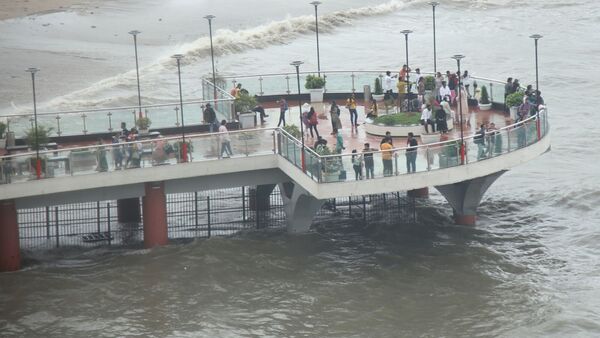
Mahalaxmi Dhobi Ghat Mumbai is a symbol of the city’s dynamic culture and hardworking people. This famous location represents more than just a place to wash clothes—it also embodies Mumbai’s workforce’s work ethic. Let us explore the intriguing realm of Mahalaxmi Dhobi Ghat and learn about the legends and meanings of this remarkable site.
Historical Background: Mahalaxmi Dhobi Ghat, Mumbai
Mahalaxmi Dhobi Ghat, which was founded in 1890, has played a significant role in the history of Mumbai. Initially set up to cater to the laundry needs of British officers and wealthy locals, it has evolved into a large-scale operation serving a diverse clientele. Over the years, it has withstood the test of time, adapting to changes while preserving its traditional practices.

Geographical Location
Located near the Mahalaxmi railway station, Dhobi Ghat is easily accessible by various modes of transportation. This tiny island in South Mumbai keeps its seclusion in spite of being encircled by the city’s bustle. Because of its convenient location, it is a popular tourist and local attraction.
Significance of the Name
The nearby Mahalaxmi Temple, a revered Hindu temple devoted to the goddess of wealth, is the source of the name “Mahalaxmi.” “Washerman’s Place” is how the name “Dhobi Ghat” translates, appropriately summarizing its main purpose. The name itself suggests both its religious and practical significance in the area.
Architecture and Layout
The layout of Mahalaxmi Dhobi Ghat is a marvel of organized chaos. The ghat is separated into multiple wash pens made of concrete, each with a flogging stone. Long rows of these pens are set up to create a maze-like space for ironing, drying, and washing. It is a sight to behold, colorful clothes neatly lined up and ready to dry.
Daily Operations
A day at Dhobi Ghat starts early, often before sunrise. Hundreds of dhobis (washermen) work tirelessly, washing, drying, and ironing thousands of pieces of laundry each day. A systematic and effective procedure has been developed over years of practice. Each dhobi has a unique clientele and route network, ensuring the laundry cycle runs smoothly.
Techniques and Tools Used
Despite the advent of modern washing machines, Mahalaxmi Dhobi Ghat predominantly relies on traditional methods. Clothes are soaked in soapy water, beaten against stones to remove dirt, and then rinsed and dried. Modern tools like washing machines and dryers have made inroads, but the heart of the operation remains manual labor.
Economic Impact
Mahalaxmi Dhobi Ghat plays a crucial role in Mumbai’s economy. It employs thousands of families, with each dhobi supporting multiple dependents. The earnings, though modest, offer a steady income, ensuring the financial sustenance of these workers. Additionally, the Ghat services numerous hotels, hospitals, and households, making it an indispensable part of the city’s infrastructure.
Cultural Significance
Beyond its economic role, Dhobi Ghat holds a special place in Mumbai’s cultural landscape. It has served as a symbol of the city’s work ethic in several documentaries and motion pictures. The ghat is frequently used to represent Mumbai’s renowned tenacity and hustle.
Challenges Faced
Life at Dhobi Ghat is not without its challenges. The workers face numerous health risks due to prolonged exposure to water and chemicals. Additionally, the socioeconomic conditions are tough, with many families struggling to make ends meet. Environmental issues, such as water pollution, also pose significant threats.
Government and NGO Involvement
To address these challenges, various government programs and NGOs have stepped in. Policies have been put in place to guarantee higher wages, better working conditions, and healthcare. Even though these programs are beneficial, funding shortages and bureaucratic red tape frequently impede them.

Tourism at Dhobi Ghat
Mahalaxmi Dhobi Ghat in Mumbai has become a popular tourist attraction. Travelers from all over the world come to see this extraordinary display of manual labor. Guided tours provide an understanding of the Ghat’s history and day-to-day operations. However, the influx of tourists has a mixed impact, providing additional income but also disrupting daily routines.
Personal Stories
Every dhobi at the Ghat has a story to tell. Many have been employed here for many generations, passing on their expertise. Many times, guests leave Dhobi Ghat with vivid memories and anecdotes from their encounters, thanks to the dedication and hard work that have made the location what it is.
Future Prospects
Looking ahead, there are plans to modernize Mahalaxmi Dhobi Ghat while preserving its heritage. Sustainability efforts, such as water recycling systems, are being explored to reduce environmental impact. Preserving the Ghat’s legacy for future generations means striking a balance between tradition and progress.
Conclusion: Mahalaxmi Dhobi Ghat, Mumbai
Mahalaxmi Dhobi Ghat Mumbai is more than just a laundry. It is a living, breathing entity that encapsulates the spirit of Mumbai. From its historical roots to its daily grind, the Ghat tells a story of resilience, hard work, and community. As we look to the future, it is important to preserve and support this unique cultural landmark.
FAQs
- What is Mahalaxmi Dhobi Ghat?
- Mahalaxmi Dhobi Ghat is a large open-air laundry in Mumbai where washermen (dhobis) clean clothes using traditional methods.
- How old is Mahalaxmi Dhobi Ghat?
- It was established in 1890, making it over 130 years old.
- Can tourists visit Mahalaxmi Dhobi Ghat?
- Yes, visitors are welcome, and there are guided tours available to give you an inside look at the Ghat’s operations and background.
- What challenges do workers at Dhobi Ghat face?
- Workers face health risks, tough socio-economic conditions, and environmental issues like water pollution.
- What is the significance of the name ‘Mahalaxmi Dhobi Ghat’?
- ‘Mahalaxmi’ is derived from a nearby temple dedicated to the goddess of wealth, and ‘Dhobi Ghat’ means washerman’s place.







